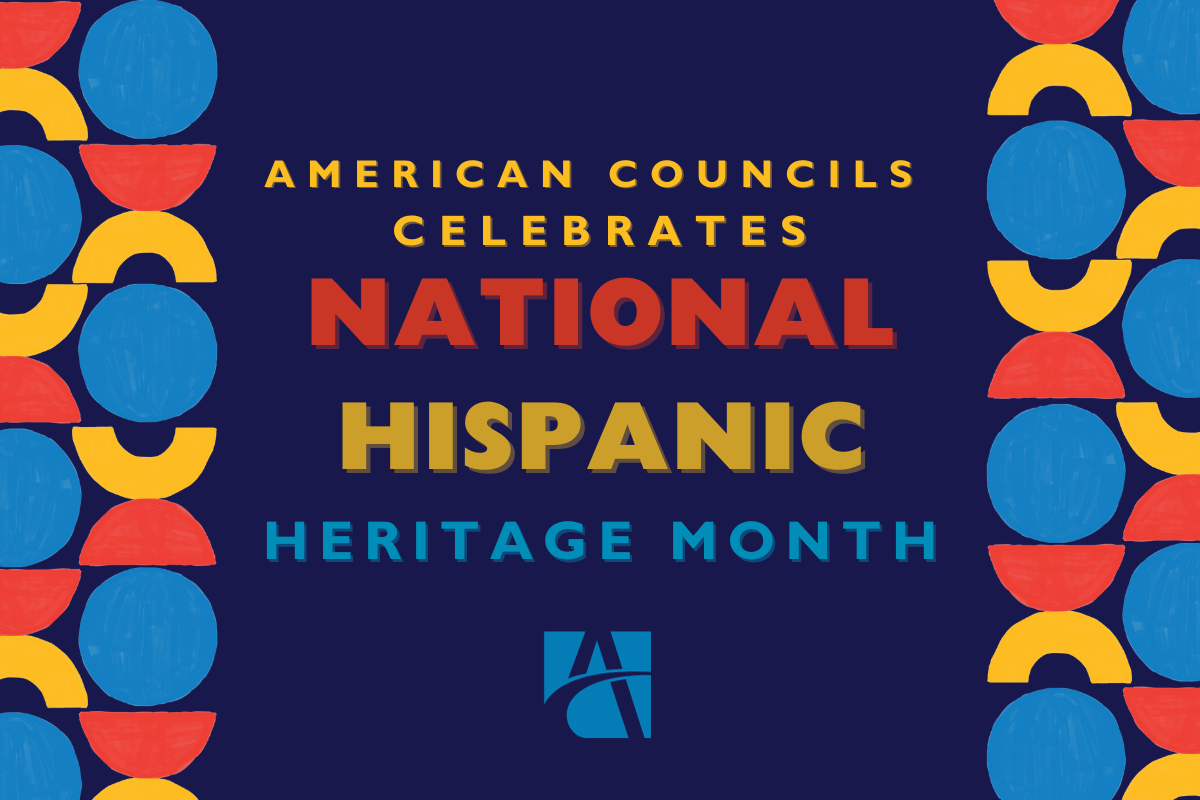September 15 to October 15 is National Hispanic Heritage Month in the United States. During this period, the nation pays tribute to the extraordinary achievements, deep-rooted history, and invaluable contributions of Hispanic and Latinx communities. In the same spirit, American Councils honors and celebrates the Latinx alumni who have participated in the diverse array of study abroad programs we administer.
In the Institute for International Education's latest report, students identifying as Hispanic or Latinx represent 12.3% of all U.S. study abroad participants. At American Councils, we are committed to changing this narrative and breaking down barriers for underrepresented students. We recognize the immense value that diverse perspectives bring to international experiences and are determined to ensure everyone has access to these transformational opportunities through initiatives like the Diversity and Inclusion Scholarship Fund, which has supported over 100 scholars since its inception in 2016.
Supporters of the Diversity and Inclusion Scholarship Fund help bridge the gap in study abroad participation and create a more inclusive and globally connected future. American Councils is grateful for the opportunity to celebrate all Hispanic and Latinx Exchange Alumni this month by showcasing exceptional students, some of whom have benefited from these scholarships. Learn more about supporting underrepresented students in study abroad with the Diversity and Inclusion Scholarship Fund.
Throughout the year, American Councils will continue to share stories and accomplishments from students and alumni representing a spectrum of backgrounds, as every month is an occasion to recognize and celebrate the diversity of our exceptional participants.
Joslyn Jasmine Maria Felicijan
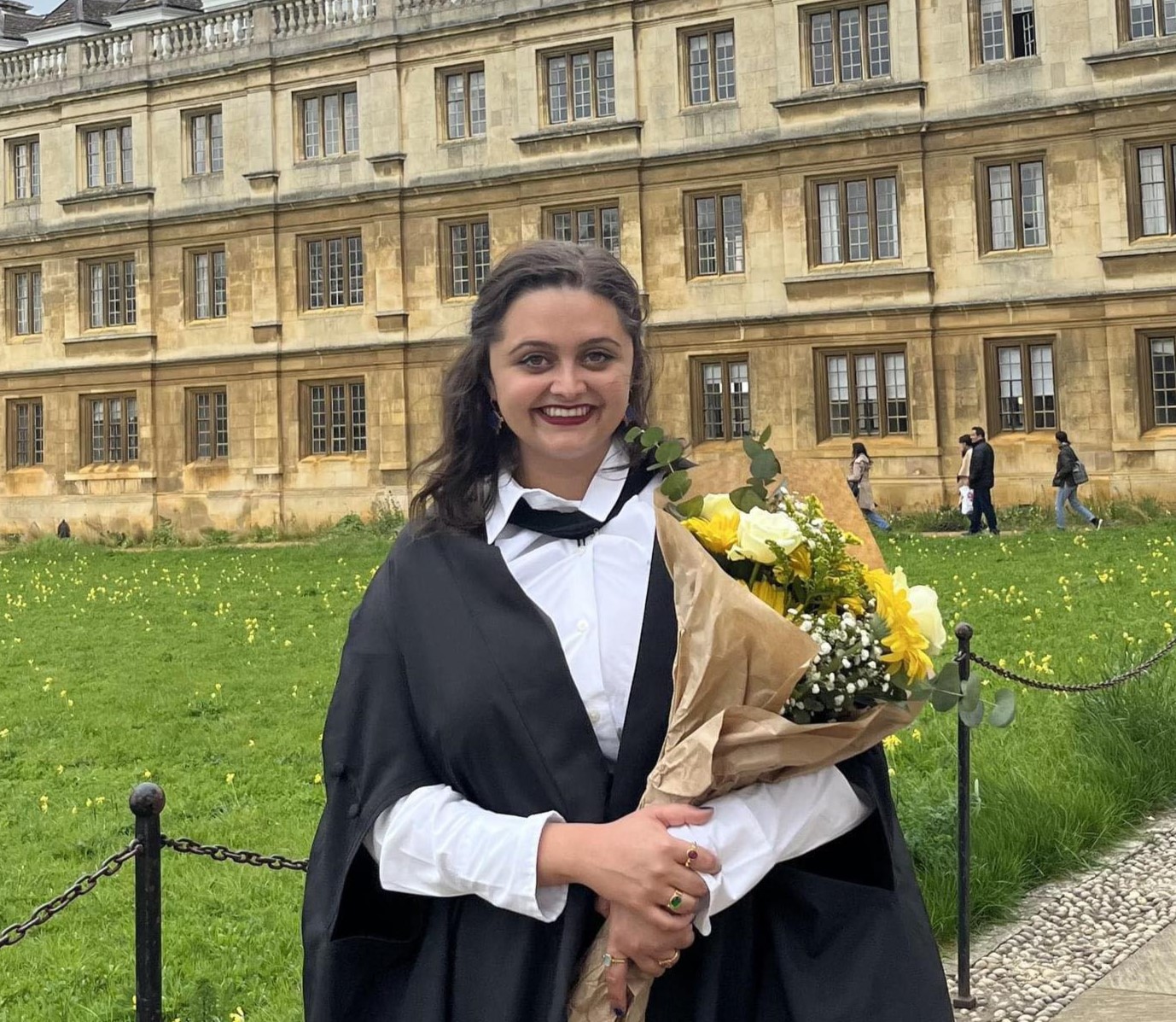 Joslyn received the Diversity and Inclusion Scholarship, which allowed her to participate in the Overseas Professional and Intercultural Training (OPIT) program, where she was placed in Lithuania. Joslyn completed two internships during her OPIT program, at the Vilna Gaon Museum of Jewish History and the Vilnius University Center for Studies of the Culture and History of East European Jews, respectively. At the Center, she assisted Dr. Jurgita Verbickiene in her "Recovering Memory" project, which involved awarding honorary degrees to students and faculty expelled during the Soviet and Nazi occupations. During her time at the museum, Joslyn played a significant role in the final developmental stages of the upcoming branch, the Museum of the Identity and Culture of Lithuanian Jews.
Joslyn received the Diversity and Inclusion Scholarship, which allowed her to participate in the Overseas Professional and Intercultural Training (OPIT) program, where she was placed in Lithuania. Joslyn completed two internships during her OPIT program, at the Vilna Gaon Museum of Jewish History and the Vilnius University Center for Studies of the Culture and History of East European Jews, respectively. At the Center, she assisted Dr. Jurgita Verbickiene in her "Recovering Memory" project, which involved awarding honorary degrees to students and faculty expelled during the Soviet and Nazi occupations. During her time at the museum, Joslyn played a significant role in the final developmental stages of the upcoming branch, the Museum of the Identity and Culture of Lithuanian Jews.
Joslyn's most cherished memory of this experience was the Lithuanians' remarkable kindness, patience, and grace towards foreigners. She had never fully appreciated the importance of feeling safe, supported, and encouraged by local communities until her summer in Lithuania, enabling her to embrace a new culture, seek authentic cultural experiences, and immerse herself in the language.
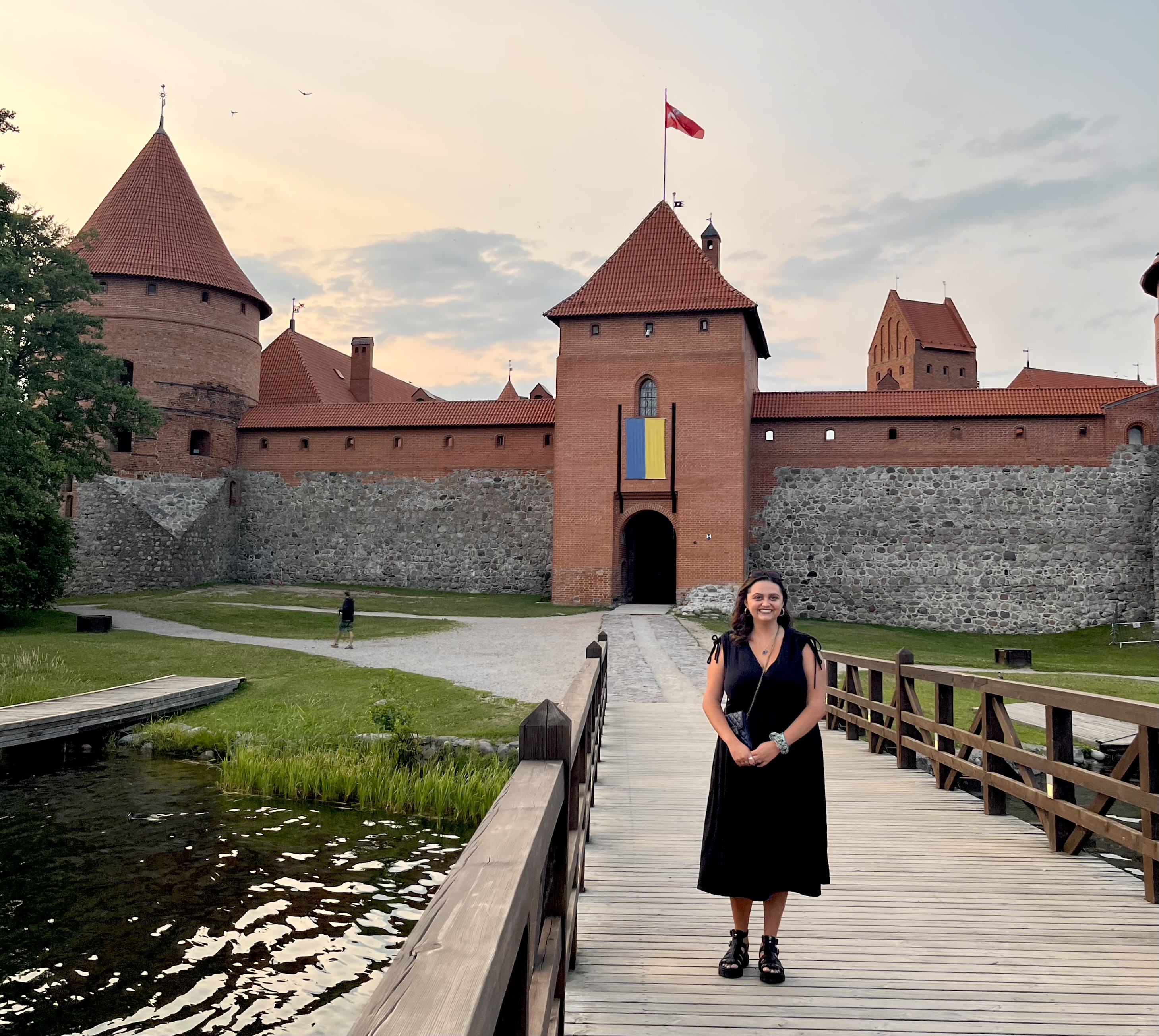 "Feeling so safe and supported on a daily basis also gave me the confidence to share more of my cultural background with those around me," Joslyn reflected. "I was very surprised and fascinated by how much Lithuanians loved Mexican culture and food. I have never seen such a celebration of Mexican identity anywhere else in Europe."
"Feeling so safe and supported on a daily basis also gave me the confidence to share more of my cultural background with those around me," Joslyn reflected. "I was very surprised and fascinated by how much Lithuanians loved Mexican culture and food. I have never seen such a celebration of Mexican identity anywhere else in Europe."
Ironically enough, Joslyn had always felt that her background as a multi-ethnic American hindered her language-learning abilities. Her family roots are traced back to Mexico and Germany, with both sides of her family feeling the pressure to suppress and forsake their native languages to fit into American society. One side told her she was "too white" to speak Spanish, while the other claimed she was "too Mexican" to learn German. Consequently, Joslyn developed an apprehension about speaking languages other than English. In Lithuania, Joslyn overcame that fear of speaking foreign languages thanks to the support of her colleagues, host family, and language teacher.
"It was a beautiful experience to re-frame how language learning can be a unique way to respect a new culture opposed to it being a hindrance based on assimilation pressures," Joslyn shared. "I now find myself more eager to practice Spanish and embrace my mixed heritage thanks to my language learning experience in Lithuania."
Joslyn's study abroad experiences have left an enduring impact on her career trajectory. After completing her degree, she envisions herself pursuing a Ph.D. in Modern European History, focusing on Holocaust memory and the gendered experiences of war. Her aspirations extend to pursuing a career either within academia or foreign service.
Read more about Joslyn's experiences in Lithuania here.
Alejandra Sanchez, Critical Language Scholarship (CLS) Program
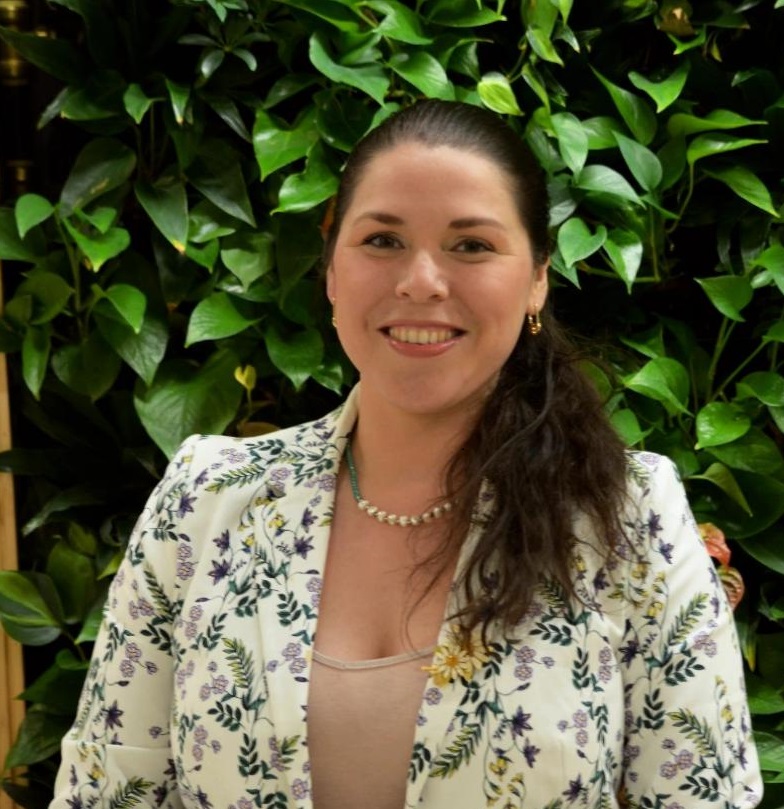 Alejandra Sanchez, an alumna of the 2022 CLS Swahili Program hosted virtually by MS-Training Centre for Development Cooperation (MS-TCDC) in Arusha, Tanzania, and the 2023 Swahili Program hosted in-person also at MS-TCDC, embodies the essence of global education and cross-cultural exchange. She's currently pursuing a master's degree at Texas State University and simultaneously serving as a social studies teacher at Paredes Middle School. As Alejandra nears the completion of her master's degree, she envisions a future where she'll be actively engaged with an international organization based in either East or West Africa. Her goal is to harness the wealth of knowledge and experiences she has gained to make a meaningful and positive impact on the global stage.
Alejandra Sanchez, an alumna of the 2022 CLS Swahili Program hosted virtually by MS-Training Centre for Development Cooperation (MS-TCDC) in Arusha, Tanzania, and the 2023 Swahili Program hosted in-person also at MS-TCDC, embodies the essence of global education and cross-cultural exchange. She's currently pursuing a master's degree at Texas State University and simultaneously serving as a social studies teacher at Paredes Middle School. As Alejandra nears the completion of her master's degree, she envisions a future where she'll be actively engaged with an international organization based in either East or West Africa. Her goal is to harness the wealth of knowledge and experiences she has gained to make a meaningful and positive impact on the global stage.
Alejandra grew up in a bilingual household and attended school in a small town on the border of the U.S. and Mexico. Her appreciation of language learning began in elementary school. "Once I started learning about other languages and cultures similar to mine, it sparked my passion for language and cultural learning," Alejandra shared. During her undergraduate studies, Alejandra opted to explore African studies courses and study abroad in Nairobi, Kenya. She enrolled in Swahili courses at the University of Nairobi to immerse herself in a new language and culture. This experience fostered a deep appreciation for Swahili and East African cultures.
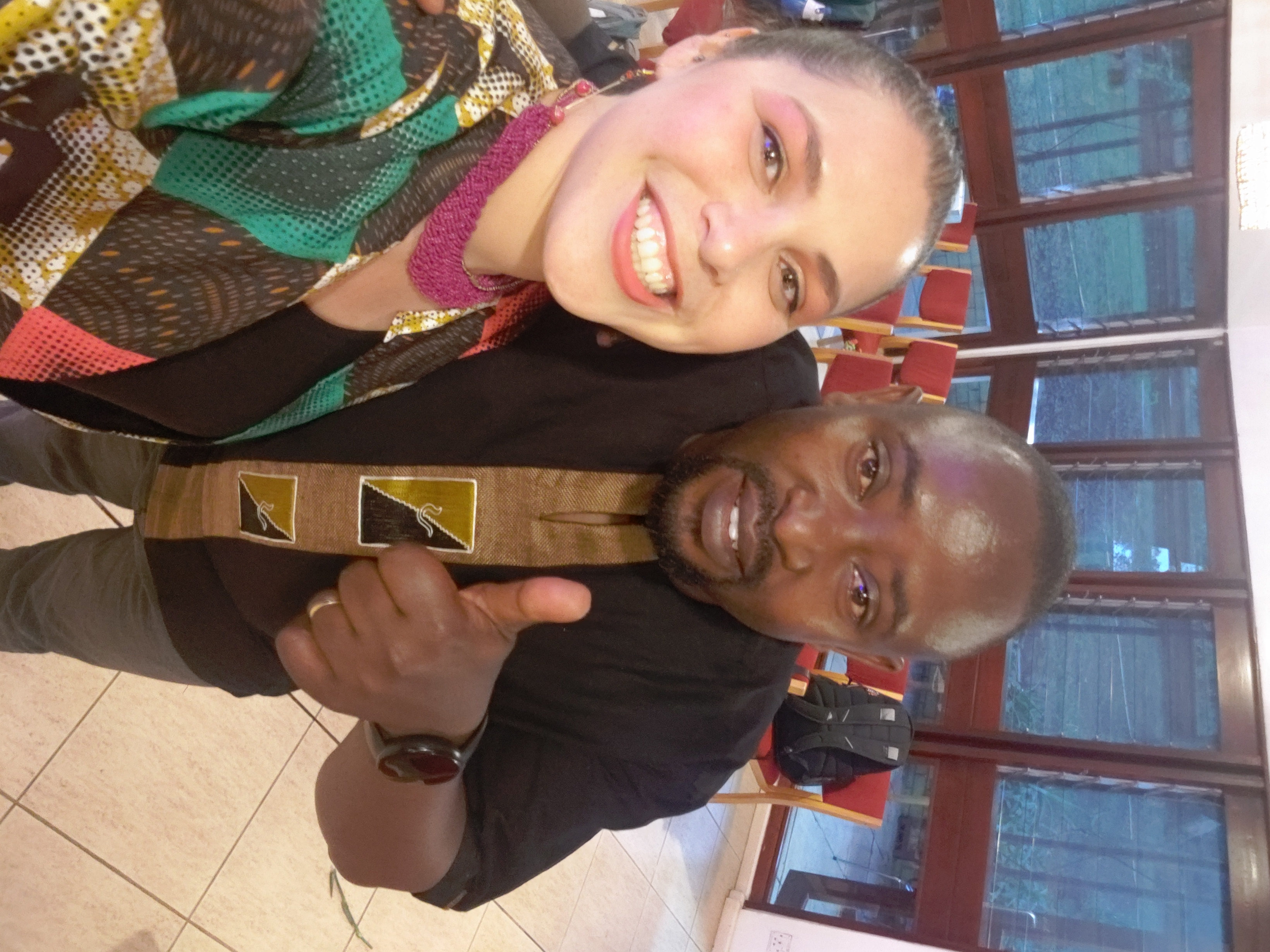
Alejandra engaged in both the virtual and in-person CLS Arusha/Swahili Programs, expressing her appreciation for the contributions of both program formats to enhance her language skills and build connections with her language partners and instructors. Once Alejandra was in Tanzania, meeting her CLS community felt like meeting long-time friends. "I was excited to grow my connections and, this time, have a host family," shared Alejandra.
Alejandra's CLS experience was transformative, helping her establish more ties in East Africa. In Tanzania, Alejandra had the opportunity to see the Conference for African Democracy, connecting her with government officials, activists, and musicians. "It was the best and most life-changing experience," Alejandra reflected. "I realize now more than ever that my academic and professional goals have led me to East Africa for a reason."
During Hispanic Heritage Month, Alejandra reflects on her Mexican heritage. "One of my favorite aspects about Mexican customs is keeping many indigenous practices of our ancestors," Alejandra shared. "I reflect on the history of my ancestors and how important it is to celebrate and honor our traditions."
Read more about Alejandra's time with CLS here.
Pamela Ortiz
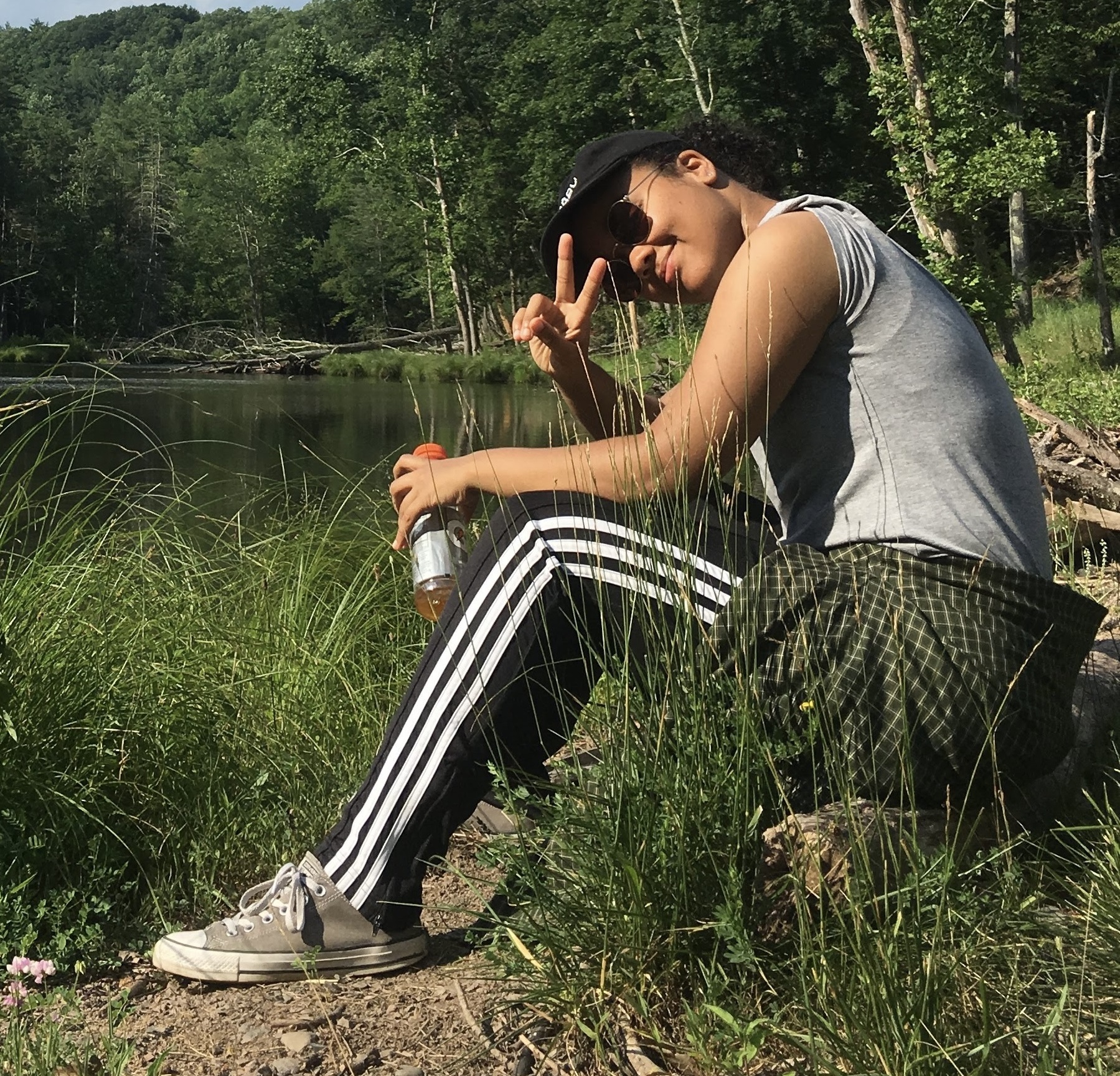 Pamela Ortiz, a 2022 CLS Japanese Program alumna, participated in the program virtually, which was hosted by Okayama University in Okayama, Japan. Pamela recently earned her bachelor's degree in computer science from Dickinson College and intends to apply her Japanese language proficiency to facilitate communication between technology firms in the United States and Japan.
Pamela Ortiz, a 2022 CLS Japanese Program alumna, participated in the program virtually, which was hosted by Okayama University in Okayama, Japan. Pamela recently earned her bachelor's degree in computer science from Dickinson College and intends to apply her Japanese language proficiency to facilitate communication between technology firms in the United States and Japan.
Pamela was born in Queens, New York, although her formative years unfolded in Santiago de Los Caballeros, Dominican Republic, where she resided for the first nine years. Pamela forged strong bonds in the Dominican Republic with her Caribbean heritage and family. It was in this vibrant setting that Pamela had her first encounter with Japanese language and culture, courtesy of a small Japanese community nestled in Costanza, La Vega, D.R. These early interactions kindled Pamela's fascination with Japanese language and linguistics, setting the stage for her future endeavors.
"Back then, I had been too young to understand why these Japanese communities didn't use Spanish equivalents of these words to express themselves," shared Pamela. "Once I moved back to the United States, I understood why. It was because, no matter who you are or where you come from. People feel a sense of pride and joy when speaking their own language. It is all I feel whenever I speak Spanish in the U.S."
Pamela's participation in CLS offered her invaluable connections to Japanese speakers, educators, and scholars. Immersed in a cross-cultural community, CLS equipped her with enhanced language abilities and adaptability, which have proven instrumental in her role as a software engineer.
"Although linguistics and computer programming are completely different worlds, I have been able to use my language learning skills to ask the right questions, find context clues, or look for resources that can help me move faster."
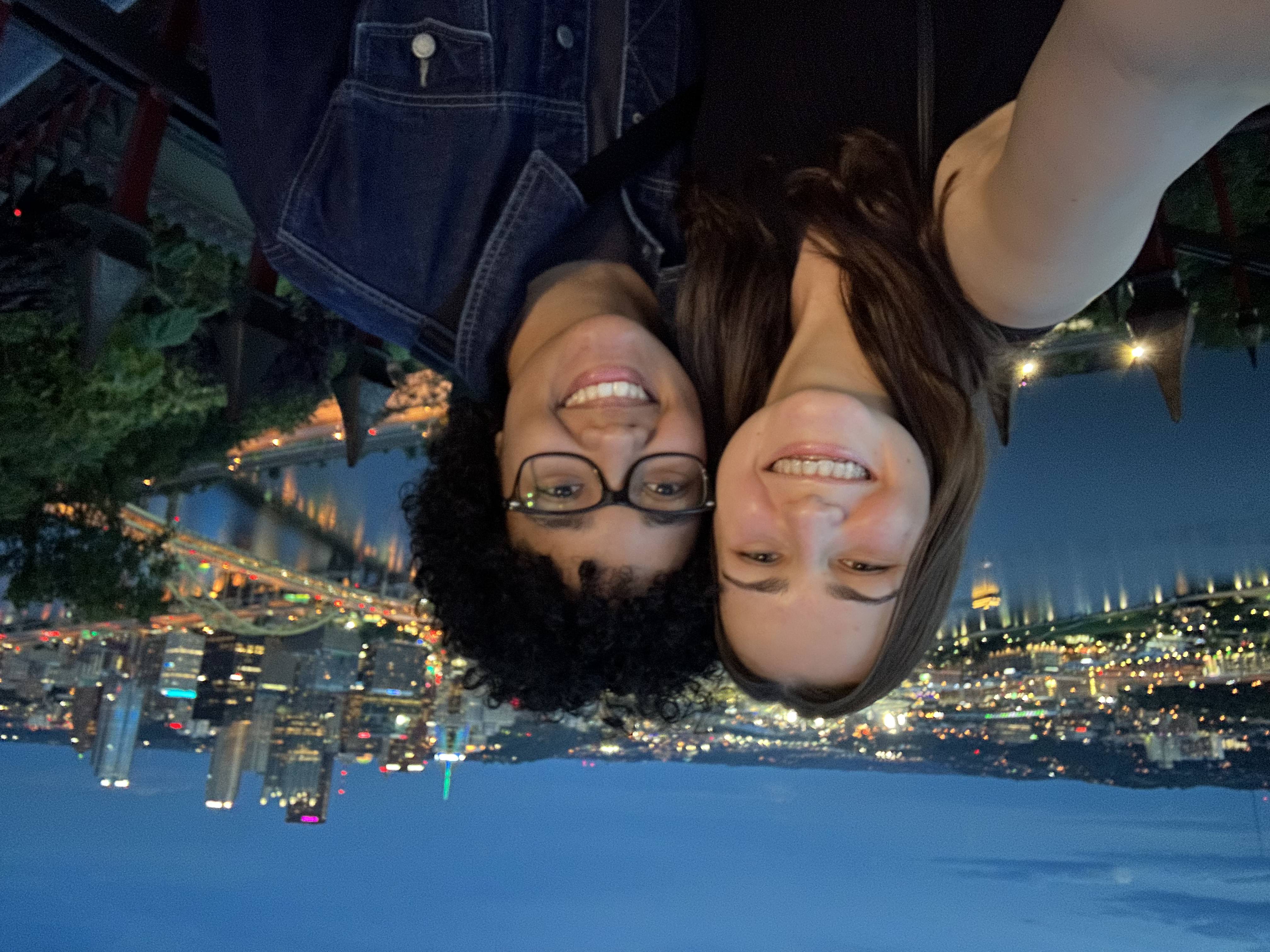 While reflecting on the significance of Hispanic Heritage Month, Pamela shares her gratitude for her heritage. Among the many aspects she could explore, hospitality holds a special place in her heart. Raised with the value of welcoming others with open arms, she embodies the kind of warmth and acceptance she hopes to encounter in return. Likewise, Pamela reflects on the resilience of Hispanic and Latinx communities throughout history that paved the way for celebrating Hispanic Heritage Month.
While reflecting on the significance of Hispanic Heritage Month, Pamela shares her gratitude for her heritage. Among the many aspects she could explore, hospitality holds a special place in her heart. Raised with the value of welcoming others with open arms, she embodies the kind of warmth and acceptance she hopes to encounter in return. Likewise, Pamela reflects on the resilience of Hispanic and Latinx communities throughout history that paved the way for celebrating Hispanic Heritage Month.
"Hispanic heritage has squeezed itself through very tight spots in history and has retained its ancestry, integrity, and passion for raising individuals who dream and fight to be heard. So, although this is something we might not be thinking about every day, current and new generations should feel proud of their culture and traditions because, as a people, we have fought a lot to preserve and practice who we are."

